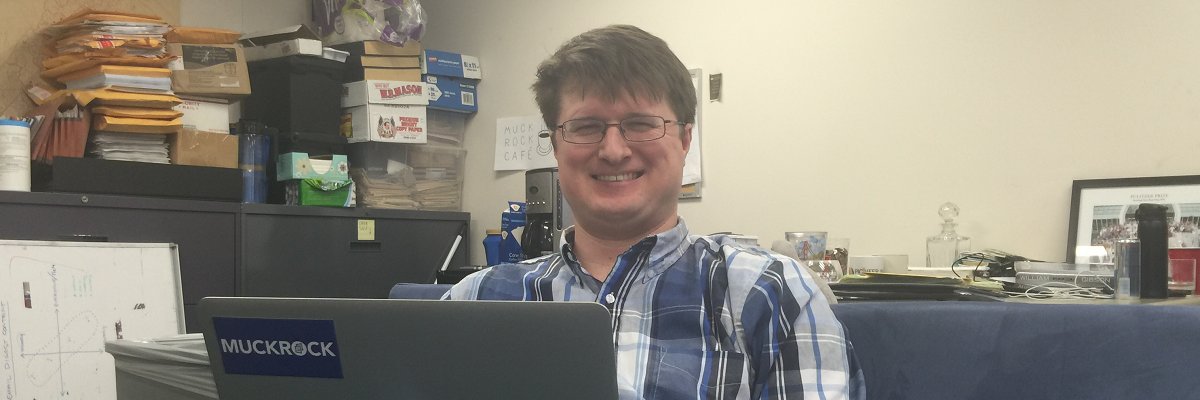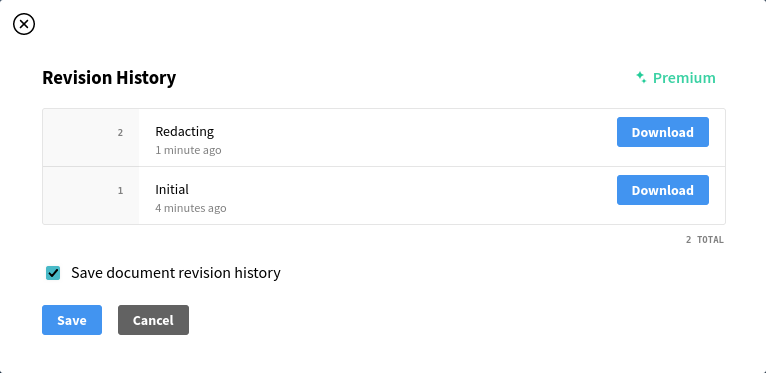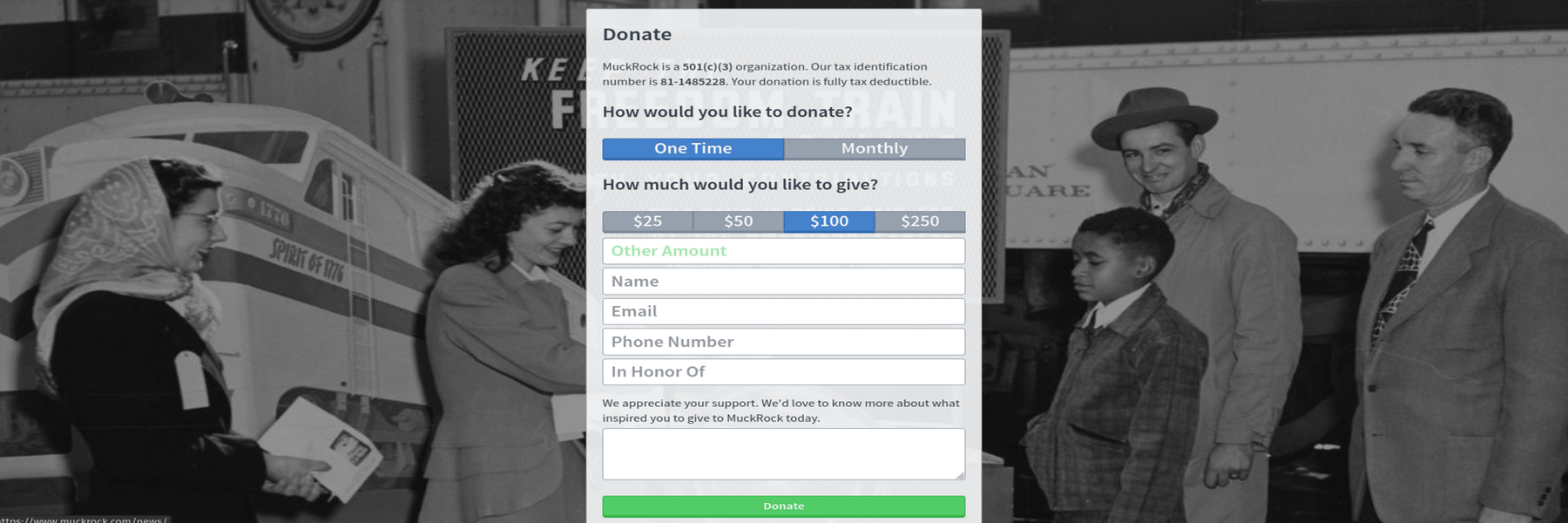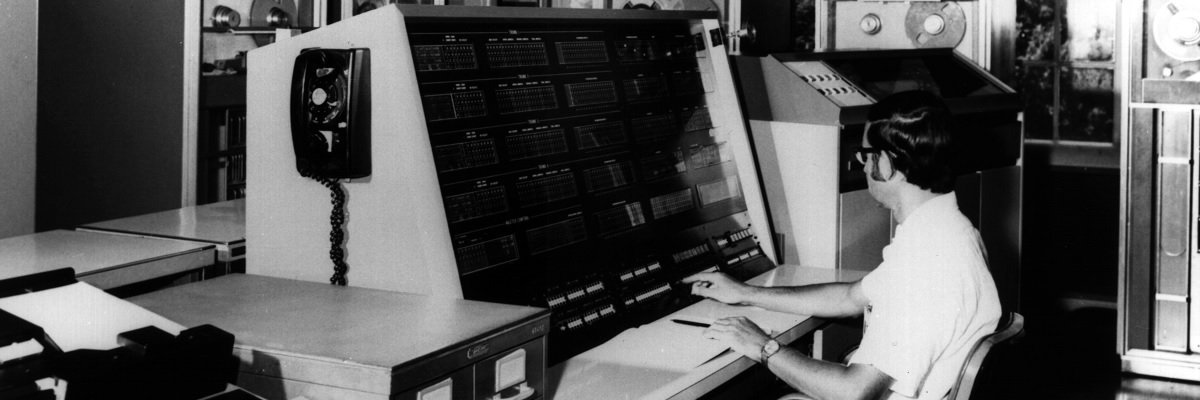In Requester’s Voice, I’ve asked dozens of people to share their public records journeys, including how they became interested in requesting and their advice for others. I’ve learned an incredible amount from them. For our sixth anniversary, JPat asked that I turn the tables on myself, and share what I’ve learned since starting MuckRock. Having helped file over 20,000 requests all around the country, hopefully I’ve learned at least something.
What was your first request, and how did it go? Why did you try using public records in the first place?
I first tried using public records in college and it was a dismal failure. I spent about six hours over the course of a few days just researching the law. This was in New York, so it was a FOIL (Freedom of Information Law) request. I finally mail in my letter and then … nothing. Out of my first three requests, all to the local police department, only one ever received a response, and the documents I got back weren’t helpful.
This was in 2005 or 2006. I didn’t know about administrative appeals, I didn’t have a lawyer, and so I just kind of kept that in the back of my mind - here was this right I have, to access public information, and I was having a very hard time exercising that right.
Where does FOIA shine as a journalistic tool, and where does it fall short?
I think FOIA can be an amazing tool for cutting through the spin. So much of what we see in news is spin, and one of the things I’ve found incredibly frustrating is how outgunned a journalist is versus the PR people. As a reporter, too often you have to go through rounds and rounds of PR people to get access to the interviews you want, and then you have to question how real the answers you’re getting are. And on the receiving end, just from my own personal experience I was getting 200, 300 inbound PR pitches a day.
FOIA is an amazing way to get outside of that, to an extent, since now it’s the reporter who is in control, and the agencies have a legal mandate to respond, or to justify why they’re not responding. FOIA puts the balance of power back on the side of truth, of the public interest, and I love that.
But that comes with some important caveats. Just because you have documents doesn’t mean they’re accurate, or that you fully understand them. Just like any other source, documents can lie or be duped or only tell part of the story, but raw, first-hand materials are still so powerful.
Things really fall short, in my opinion, in how slow and bureaucratic the process has become. If parking ticket collections or another public program was run as poorly as most public records programs, an official would be out so quick, if you’d blink you’d miss it. But we’ve grown accustomed to public records and FOIA taking months or even years, and the courts have generally shrugged their shoulders and said, this is how it is.
I don’t think we should settle for that being how it is. I think in 2016, we should be setting a standard that public records requests can be fulfilled in hours or minutes. That requires starting to think about transparency from the outset, when we purchase government IT systems, when we decide how to store our public data. But I think it’s absolutely doable, but instead agencies are asking for more time. Where else has data access slowed in the world but government information?
How often does FOIA come into play in your work, and in what contexts?
Every day, obviously, since public records and FOIA are essentially what MuckRock exists for. But beyond MuckRock, I find public records incredibly useful, for other reporting roles I’ve held and also just to better understand how governments operate in our name.
Any particular areas that you’ve found your FOIA work increasing in?
One thing we didn’t realize coming in was how many citizen groups, activists, and just ordinary people use public records to get their questions answered. I think that’s increased, and I think the visibility of that has greatly increased. I think that as news staffing has been cut locally almost everywhere, groups that are savvy about using this kind of documentation and putting it to work in informing and improving their communities has led to wonderful things.
How many FOIA requests do you file?
I’ve filed 1,242 since starting the site. I try to file about 10 good requests a week, just reading the news and trying to figure out where the news cycle kind of dropped an important issue, and trying to figure out where FOIA and public records could pick it up, even if it’s in a few weeks or months when I get the documents back.
What’s your favorite request you ever filed? How did it turn out?
I love filing off the wall requests that are inspired kind of by serendipity. I noticed a little sticker on an ATM that said, if you have a complaint about this ATM, call here. So I filed a request and got a list of ATM complaints so you know which ones to avoid.
But maybe my favorite request, which wasn’t particularly inventive, was for Richard Feynman’s FBI files. It almost certainly wasn’t the first time those documents had been released before, but I think it was the first time they had been made public on the web. And I really enjoyed reading them and working on a story about them with Robby Hovden, where we were able to mix the files we got back with what we already knew, publicly, and tell what I thought was a really interesting story.
We later worked with Bradley Campbell to put together a podcast episode on that story which was another fascinating way to explore that history and the intersection between science, history, and national security.
What advice do you have for a first time FOIA filer? What do you wish the filers you worked with did differently?
Get specific and put yourself in the FOIA officer or public records custodian’s shoes. I think one of the thing that first-time requesters do, particularly if they’re reporters, is assume that the agencies work in lockstep a lot more than they actually do. Just like any other large organization, government agencies are way more complex and confusing than they seem from the outside, full of people who may not like each other internally or even know each other, and so figuring out how you phrase a request that, if you gave it to the front desk, they could figure out what the heck you’re talking about, who to talk to to find the documents in question, and how to do it all without messing up their own day too much.
99.99% of the time, public records officers and FOIA officers are just good people trying to do their job, a job where they have to balance a lot of competing interests and where they don’t always have all the information needed to be able to do their job unless you give them that information. So take a minute, and just try and picture how things are on the inside, and what kinds of breadcrumbs you can give them to help them help you.
Do you think the media spends enough time filing its own requests and sifting through documents?
No, though there are certainly a lot of individuals doing amazing work at many, many organizations. One of the key reasons we started MuckRock was because we looked at reporting that made a difference over several decades: Stories that lead to reform, stories that lead to change and improving things.
Again and again, they shared a number of traits: Great writing, great interviews, clear problems - and public records. So many of the stories that lead to actual reform, so many of the stories that ended up taking home a Pulitzer for public service or investigative reporting ended up using public records as a key building block for their reporting.
But when we spoke to newsrooms in 2009, 2010, fewer and fewer people were actually filing requests. They found they just didn’t have time, or the process was too complicated. So that was a key reason we built the site: FOIA is incredibly important, but was too hard, too cumbersome, particularly for digital reporters.
Where did you learn about the FOIA process?
A lot of trial and error, but also some wonderful mentors through the years. The FOI-L mailing list was and is a wonderful resource, especially for getting my questions answered early on. I always recommend The Art of Access by David Cuillier and Charles Davis, which is a very readable, practical guide.
The Reporters Committee for the Freedom of the Press’ Open Government Guide, or the RCFP OGG for short, is a truly unique and tremendous resource when it comes to state-by-state public records data.
I always learn something doing these interviews, too, so it’s a bit of a plug but I think the Requester’s Voice archive has been really helpful.
Any tips or tricks you keep in mind as filers hunt for interesting documents?
Government loves documentation, so just think: How would this be documented? How would this be tracked, what kind of oversight exists, even if just in theory? Taking a few minutes to get a feel for how agencies operate means you can file requests that are less of a burden for them, but potentially much more interesting for you and the public.
I also really liked Brandon Smith’s advice: File requests that, if rejected, will still be interesting. Sometimes a “no” can be just as interesting as a yes if you phrase the request right. That’s something I used to be better at, and is kind of one of my New Year’s resolutions.
Also, just notice what kinds of documents others are getting, and how they’re using them. I keep a list of stories written based on public records I use as inspiration, and it’s taught me to look out for interesting request ideas in all sorts of places.
But most of all file: The best way to learn is by filing requests, and building the habit. The more you file, the better you’ll get, and the more you’ll get out of it. And then maybe I’ll get to interview you and share what you’ve learned with the rest of the world.




